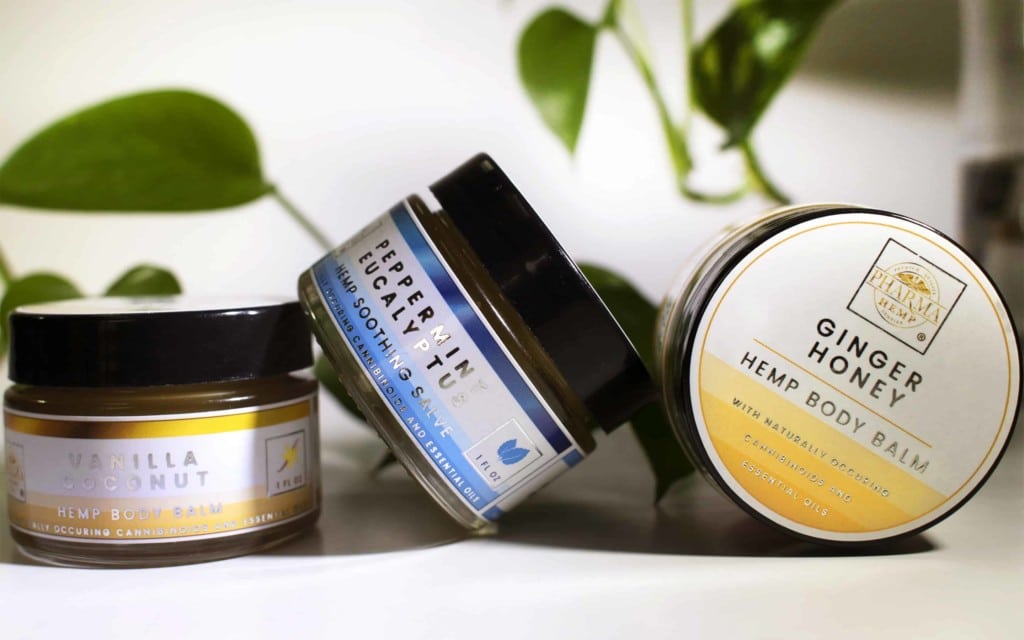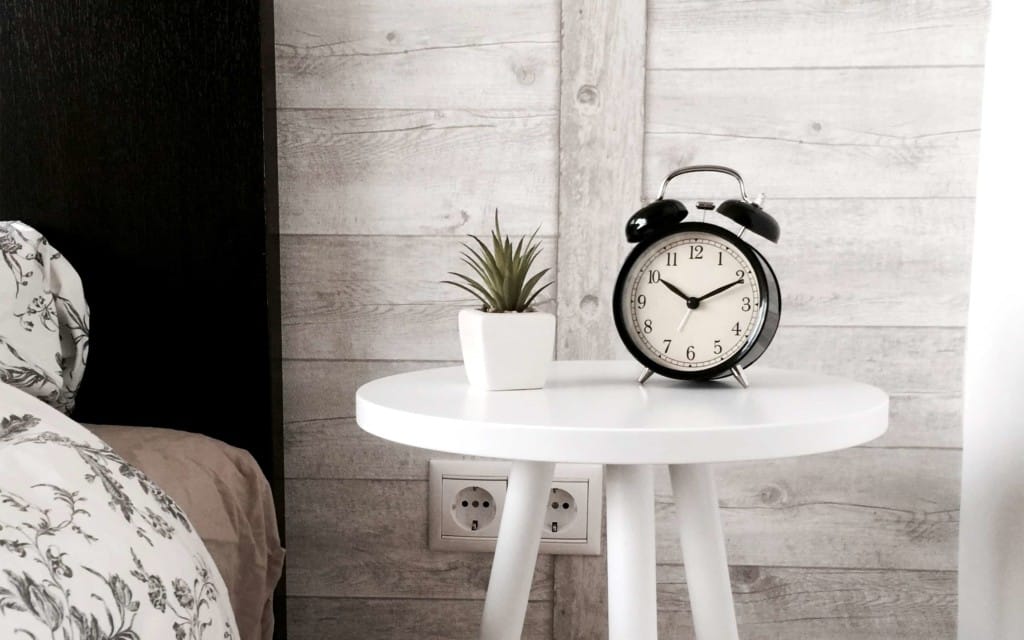Sleep disorders are far more common than people realize. CBD oil is a fairly new sleep aid on the scene. Today we’re going to investigate CBD oil for sleep. We’re going to look at:
- Does CBD make you sleepy?
- CBD flower effects
- Best time of the day to take CBD oil
- CBD oil side effects
- CBD oil for anxiety
In America, 70 million people have a sleep disorder. What’s more, around one in three adults worldwide struggle to get enough sleep regularly. If that wasn’t worrisome enough, how about the fact that around 1 billion people around the globe have sleep apnea?
Unfortunately, many prescription and over-the-counter sleep aids aren’t as effective as we might hope. They frequently cause side effects like drowsiness through the day, dependence, and more.
Is CBD oil a more natural solution?
Using CBD oil for sleep isn’t as common as using an over-the-counter antihistamine or melatonin capsule yet.
However, the popularity of CBD oil for insomnia is on the rise. Studies are beginning to show that CBD has the power to transform the way we live by eliminating pain, anxiety, and even stress.
So, will CBD oil put your insomnia to bed once and for all?
Let’s find out.

CBD oil for sleep: How does CBD help with sleep?
Let’s start by covering the basics: What is CBD oil?
CBD is one of a collection of over 120 compounds called “cannabinoids.”
Though most people associate cannabinoids with the cannabis plant, they’re also found in various other plants. Your own body even produce a like substance itself, called endogenous cannabinoids.
Unlike other cannabinoids, such as THC (tetrahydrocannabinol), CBD doesn’t produce a psychoactive “high” effect. Instead, it interacts with something in the human body called the endocannabinoid system, or “ECS.”
The endocannabinoid system receives and translates signals sent to your brain by cannabinoids. It can tell your body to reduce feelings of pain, let go of stress, or eliminate anxiety.
While there’s still a lot of scientific research to do in this area, preliminary studies suggest that CBD oil for insomnia and sleeping disorders could be effective.
Does CBD make you sleepy or drowsy?
The short answer is no. When you consume cannabinoids in the form of CBD oil for sleep, the molecules of these unique substances bind to the endocannabinoid receptors in your nervous system.
The kind of cannabinoid you’re exposed to affects the neurological effects you experience. CBD flower effects are giving the brain signals to release the common feel-good hormones serotonin and dopamine.
It targets insomnia at the root cause without causing drowsiness, as the THC content in CBD is very low. Being able to fall asleep and stay asleep on CBD oil simply come from generally feeling better.
The research at this time is pretty limited. Way back in the 1980s, we learned that people with insomnia who used CBD oil for sleep disorders woke up less often.
However, the research back then was only conducted into 15 people. Newer, more extensive studies have started to appear recently.
In 2017, we found out that CBD might be therapeutic for people with sleep disorders. The research indicated that the oils are best for people with REM sleep behaviour disorder.
In 2019, a study conducted in 72 patients, 48 of then reported better sleep after 1 month on CBD oil. 57 of them reported less anxiety in the first month. Hardly any side effects was described.
Though research is ongoing, and the results are mixed, most of the outcomes of the studies into CBD oil for insomnia today are positive.
Most experts seem to agree that CBD has an effect on sleeping patterns. However, at this time, we’re not 100% sure why CBD oil is so effective treating various disorders.
CBD oil side effects: Are there any risks with this treatment?
Before you consider using CBD oil for sleep and relaxation purposes, you’ll probably want to know that it’s safe. The good news is that there are very few dangers associated with this kind of sleep disorder treatment.
A report by the World Health Organisation published in 2017 found that cannabidiol doesn’t appear to cause any specific harm.
Ultimately, there aren’t a lot of CBD oil side effects that you need to be worried about (if any). However, it’s always a good idea to proceed with caution when taking any new substance.
For instance, CBD oil can interact with the liver enzymes responsible for breaking down other prescription medications. This could mean that they cause certain drugs to break down slowly in your bloodstream.
Other possible side effects of CBD oil include:
- Dry mouth
- Drowsiness (if the level of THC is too high)
- Diarrhoea
- Changes in appetite or bodyweight
- Low blood pressure
- Nausea
Importantly, when CBD oil side effects do occur, they tend to be more common among people who are taking other drugs already.
The side effects that happen with these substances are usually related to the way that the other medication breaks down. That’s why it’s such a good idea to check with your doctor before you start using CBD oil for insomnia.
As with any medication, it’s also a good idea to avoid taking medicines like CBD oil for sleep when you’re pregnant or breastfeeding without speaking to a doctor first.

CBD oil for anxiety and insomnia
A lot of people associate drugs like cannabis with feelings of relaxation or sleepiness. However, there’s more to using CBD oil for insomnia than relying on something to make you feel drowsy.
Interestingly, CBD oil can make you more alert just as effectively as it makes you feel sleepy. That’s why it’s so difficult to fully understand CBD oil benefits as they relate to sleep disorders.
One of the main reasons why experts believe that CBD oil and sleep go so well together is that the substance works to reduce feelings of anxiety and stress.
Additionally, sleep quality during this period increased within the first month for 66.7% of respondents too. Other studies have found that CBD oil for sleep disorders is particularly useful when improving your reaction to stress.
Anxiety is one of the primary causes of sleep problems. If you have a hard time getting your mind to switch off when you go to bed at night, then CBD could be the perfect solution. Stresses caused by problems with work, relationships, or just day-to-day concerns can make it very difficult to sleep soundly at night.
Fortunately, CBD oil helps to prevent you from becoming a mess of nerves when you lie down and try to relax at night.
When it interacts with the endocannabinoid system in your nervous system, CBD oil for insomnia improves the brain’s capacity to deal with things like anxiety and sleep. This means that you end up with a calmer mind, making it easier to fall asleep, and remain in your dreams.
So, the basic answer to “Does CBD oil help with sleep” is yes. However, more importantly, CBD oil addresses your sleep issues in a way that isn’t going to harm how you feel during the day when you wake up.
Before we continue check out these great products on Amazon.
CBD oil for sleep disorders doesn’t have the same intoxicating effects found with the other common cannabinoid in cannabis, THC. That means that you’re not going to get the drowsiness you experience with using alcohol or over-the-counter drugs to sleep.
When you wake up, another dose of CBD can help you to focus and feel more alert. The substance works naturally with the rhythms in your body.
If you’re awake and trying to concentrate on reading an article on CBD oil and sleep, the same substance will help you to concentrate.
Think of this oil as an adaptable drug. It will alter its effect on your nervous system based on what you’re trying to do at any given moment. That’s one of the reasons why CBD is such an effective treatment for insomnia — because it doesn’t just make you drowsy.

Will CBD oil help you sleep? Who is CBD good for?
The nature of CBD oil means that it won’t be the ultimate treatment for everyone who has sleep issues. If you’re suffering from an inability to sleep because of a medical condition, then your doctor will need to get to the route of that problem.
Additionally, CBD oil won’t knock you out if you can’t sleep because of an uncomfortable bed or bad sleep hygiene.
However, CBD oil for sleep and relaxation can be an excellent solution for treating the underlying issues that cause problems like insomnia. For instance, studies into CBD oil benefits so far have found that this substance is particularly good at dealing with:
Chronic pain
Getting to sleep these days is hard enough, with all the stress and chaos that we need to deal with in our day-to-day lives. Add the issue of chronic pain into the mix, and it’s easy to see why so many people struggle.
Around 20% of adults currently suffer from some form of chronic pain. Your discomfort may come from arthritis or neck injuries, stomach problems, digestion issues, or something else entirely.
Fortunately, studies indicate that CBD oil is fantastic at relieving chronic pain or at least making it easier to handle.
When you ingest CBD oil, the endocannabinoid boosts your mood, releasing serotonin and dopamine that adjusts the way your brain responds to pain. What’s more, the substance interacts with the CB2 receptors in your body to reduce inflammation too.
Stress, depression, anxiety and other mental issues
We’ve already discussed how CBD oil for sleep often works by tackling feelings like stress and anxiety that may stop you from getting to sleep. While people with chronic pain typically have trouble getting their bodies to relax at night, many people with anxiety have the same problem with their mind. Around a third of individuals with insomnia, today also have an anxiety disorder.
Fortunately, CBD oil is an excellent way to treat this problem without inadvertently messing with your sleep cycle. People with depression and anxiety often have lower serotonin levels than their counterparts. CBD naturally raises these levels, making depression and other mood problems easier to handle. CBD oil targets the 5HT1A receptors in the brain that are involved in making you feel happier and calmer.
Epilepsy and sleep disorders
There are many different disorders that can increase your chances of having a problem with your sleep. Epilepsy is currently the fourth most common neurological issue in the US.
If you have epilepsy, you may also have various sleep issues that make it difficult to get a full night of rest. Fortunately, a wealth of research has begun looking into CBD oil benefits for people with epilepsy. According to studies of people with this condition, CBD reduces the number of monthly seizures by up to 50%!
When CBD started to grow in popularity, many of the states throughout the US that legalised this substance chose to do so just so that it could be prescribed to people with epilepsy.
The first drug containing CBD to be approved by the FDA is for epilepsy too. Of course, it’s worth checking with your doctor to find out if this treatment is right for you before you begin using CBD to treat epilepsy and insomnia.
Affecting the sleep-wake cycle
CBD oil for insomnia also has an impact on the body’s sleep-wake cycle. Unlike other substances that help you to get to sleep but force you to feel drowsy through the day, CBD oil works with your natural rhythms.
In other words, you’ll feel more awake when you need to, and more sleepy when it’s time to rest. Studies found that CBD can increase alertness during the day just as effectively as it improves sleepiness at night.
The fact that CBD is so great at affecting all aspects of your sleep cycle makes it great for people who suffer from disorders caused by frequent changes to their circadian rhythm. For instance, you might benefit from CBD if you’re a shift worker, or travel across the country a lot.

How to take CBD oil for sleep: The basics
So, how do you take CBD oil for sleep purposes?
Well, there are lots of options depending on your preferences. For instance, some of the most common ways to take CBD oil include:
- Tinctures: A CBD oil tincture is a bottle with a dropper. You add the oil to the space underneath your tongue in small drops. This method is simple, fast-acting, and easy. However, it isn’t ideal if you don’t like the taste of CBD.
- Topical: CBD products intended for topical applications are growing in popularity within the health and beauty industry. You’ll find transdermal patches, creams, and lotions available on the web and from certain stores today. However, these options are more likely intended for chronic pain rather than sleep disturbances.
- Inhalation: Vaporizers and vape pens are another way to get your daily dose of CBD oil for insomnia. These methods get the substance into your system almost immediately, making them excellent for people who have anxiety or need to deal with quick panic attacks.
There’s also the option to take CBD oil for sleep in the form of standard pills or capsules. For some people who don’t like the taste of CBD oil, this is the best solution, as it means that they can get the dose they need without worrying about the flavour.
Additionally, capsules and pills feel familiar with taking a standard over-the-counter treatment for sleep issues.

How much CBD oil should I take for sleep?
The method of delivery isn’t the only thing worth considering when you’re wondering how to take CBD oil for sleep. You may also need to consider how much of this substance you’re going to take.
Because CBD isn’t regulated by the FDA for the most part, there aren’t any official dosing guidelines available. However, most experts recommend starting with about 1mg to 2mg of oil for every 10 pounds of body weight.
Saying that, some studies indicate that moderate amounts of CBD oil may be best for people who suffer from severe sleep issues. One study of people with insomnia and epilepsy found that higher doses of CBD were more effective than lower doses.
As with most treatments for insomnia and other sleeping disorders, there’s no one-size-fits-all solution. The right dose for you will depend on the severity of your sleep problems, your body weight, and the way that you respond to cannabidiols.
As with any medical treatment, including supplements, herbal remedies, and over the counter medications, please don’t try to self-medicate without speaking to your doctor first.
CBD is entirely legal in the UK and other countries now, so you shouldn’t feel nervous about approaching your doctor and asking them how much oil they would recommend using to treat your sleep disorder.
Speaking to your doctor before you begin treatment will also reduce the risk of dangerous medical interactions between your CBD and any other drugs you’re using.

When to take CBD oil for sleep
So, what is the best time of day to take CBD oil?
As a natural and organic solution to sleeping disorders, CBD oil for insomnia is best implemented into part of your standard sleeping routine. The way you choose to ingest CBD will affect how quickly you start to see the benefits.
For instance, if you take an oral solution like a pill or capsule, it can take up to 90 minutes before you notice anything. On the other hand, inhaled substances can take as little as 1 minute to take effect.
Once you find the CBD oil solution that works best for you, implement it as part as your nightly routine. For instance, if you’re using a tincture, consider adding a few drops of oil to the space under your tongue after you’ve finished your evening cup of tea, just before you go into the bath and eventually settle into bed.
If you use CBD oil and sleep routines effectively, your mind will start to associate the taste of the oil with the fact that it’s time to go to bed.
It’s hard to overestimate the impact that insomnia is having on the world that we live in. Many scientists and health professionals consider sleep disorders to be an epidemic.
Around 1 in every 4 adults in the US say that they struggle to sleep soundly most nights without some form of assistance. In a world where over-the-counter and prescription medications aren’t always as safe or effective as we would hope, CBD may be the solution.
Ultimately, there’s no guarantee that CBD oil for insomnia will be the right treatment option for you. However, research seems to suggest that this solution offers an easy, effective, and risk-free way to overcome sleeping problems.
The best way to answer the question, “Is CBD oil good for insomnia?” is probably to try it for yourself.
Want to find out more about how you can use natural strategies to improve your sleeping habits? Subscribe to our blog at siestio.com for behind the scenes insights into making the most of your sleeping routine. We’ll get you those sweet dreams that you’re craving!
Siestio. Sleep Matters.
Medical disclaimer
You must not rely on the information provided on our website as an alternative to medical advice from your doctor or other healthcare professionals. For more information read our full disclaimer here.








